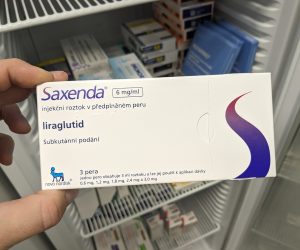Zepbound vs. Ozempic: What’s the Better Choice for Long-Term Weight Loss?
Why Dieting Alone Doesn’t Always Work—and How Medication Can Help
For years, weight loss advice has been simple: eat less, move more. But if that really worked for everyone, obesity wouldn’t be an epidemic. The truth is, weight loss isn’t just about willpower—it’s about hormones, metabolism, and how your body responds to food.
If you’ve spent months or even years dieting and exercising with little success, you’re not alone. Many men struggle with hunger signals, slow metabolism, and stubborn fat storage that make losing weight feel like an uphill battle.
That’s where Zepbound and Ozempic come in. These once-weekly injections retrain your body’s hunger response and improve fat metabolism, making weight loss not only possible—but sustainable.
But which one is right for you? Do you need a stronger appetite suppressant or a medication that boosts fat burning? Is one faster, safer, or more cost-effective? Let’s break it all down so you can make the right choice.
Why Weight Loss Medications Are Changing the Game
For decades, weight loss medications were either dangerous, ineffective, or both. Many past drugs came with severe side effects, addiction risks, or short-lived results.
Zepbound (Tirzepatide) and Ozempic (Semaglutide) are different because they:
- Target the body’s natural appetite and metabolism hormones instead of using stimulants.
- Are FDA-approved with proven results from clinical trials.
- Help patients lose weight and keep it off long-term.
These medications aren’t about quick fixes—they’re about resetting the body’s response to food and fat storage, making weight loss more predictable and sustainable.
How Zepbound and Ozempic Work—and What Makes Them Different
Both Zepbound and Ozempic work by regulating appetite and digestion, but they don’t do it the same way.
Zepbound: The Fat-Burning Metabolism Booster
Zepbound is a dual-action medication that targets two key hunger and metabolism hormones:
- GLP-1 (Glucagon-Like Peptide-1): Slows digestion, reduces appetite, and improves blood sugar control.
- GIP (Glucose-Dependent Insulinotropic Peptide): Boosts fat metabolism and helps the body burn stored fat more efficiently.
Because Zepbound activates both hormones, it leads to faster and more significant weight loss than single-action medications like Ozempic.
Ozempic: The Appetite Suppressor
Ozempic, originally developed for Type 2 diabetes, only activates GLP-1. This means:
- It slows digestion and helps you feel full longer.
- It reduces hunger and food cravings, leading to lower calorie intake.
- It stabilizes blood sugar levels, which can help prevent energy crashes and cravings.
While effective, Ozempic doesn’t have the same fat-burning properties as Zepbound.
How Much Weight Can You Lose? Clinical Data Breakdown
Zepbound’s Results (SURMOUNT-1 Clinical Trial)
- Patients taking 15 mg of Zepbound lost an average of 20.9% of their body weight.
- Those taking a 10 mg dose lost 19.5%.
- Even at the 5 mg dose, patients lost around 15% of their body weight.
Ozempic’s Results (STEP Clinical Trial)
- Patients on 1 mg of Ozempic lost between 10-12% of their body weight.
- Higher doses, such as 2 mg, resulted in an average weight loss of 14.9%.
The Verdict?
- Zepbound consistently leads to greater weight loss.
- Ozempic is effective, but the results are slower and less dramatic.
If you’re looking for faster, more aggressive weight loss, Zepbound is the better option. If you want a steadier, more gradual approach, Ozempic could be a good fit.
Side Effects: What to Expect on Each Medication
Both medications affect digestion and appetite, so side effects are often gastrointestinal.
Common Side Effects of Both Medications
- Nausea and vomiting (especially in the first few weeks)
- Diarrhea or constipation
- Fatigue and dizziness
Zepbound-Specific Side Effects
Because Zepbound affects both appetite and fat metabolism, some patients report:
- More intense appetite suppression in the first few weeks.
- Mild nausea that fades over time.
- Faster metabolic adjustments, which may cause temporary fatigue.
Ozempic-Specific Side Effects
Since Ozempic only affects GLP-1, it has milder but longer-lasting digestion-related side effects.
- Some patients experience long-term nausea or bloating.
- Fewer metabolic effects compared to Zepbound.
Most side effects improve within a few weeks as your body adjusts.
Who Should Take Zepbound vs. Who Should Take Ozempic?
Zepbound Is Best For You If:
- You want to lose weight quickly and shed 15-20% of your body weight.
- You struggle with intense cravings and feel constantly hungry.
- You want a medication specifically designed for weight loss.
Ozempic Is Best For You If:
- You want steady, moderate weight loss (10-15% of body weight).
- You prefer a milder appetite suppressant without strong metabolic changes.
- You have Type 2 diabetes and need blood sugar control benefits.
Cost and Insurance: How Much Will You Pay?
Zepbound Costs
- Without insurance: Around $1,000 per month.
- Eli Lilly offers savings programs that can help reduce costs.
Ozempic Costs
- Without insurance: Typically $900-$1,200 per month.
- More likely to be covered if prescribed for diabetes.
If cost is a concern, Ozempic has better insurance coverage, while Zepbound offers stronger weight loss benefits.
Take the Next Step with Florida Men’s Health
Start Losing Weight—With the Right Plan for You.
Choosing between Zepbound and Ozempic isn’t just about the medication—it’s about finding a plan that works for your body, your lifestyle, and your long-term goals.
At Florida Men’s Health, we offer:
- Expert weight loss consultations to determine the best treatment for you.
- Personalized plans that go beyond medication—focusing on diet, fitness, and lifestyle.
- Support at every step, ensuring you get long-term success.
Call Florida Men’s Health today at (954) 584-7009 to book a consultation.
Get the right medical weight loss solution—one that actually works for you.
Summary
- Zepbound leads to greater weight loss (up to 20.9%), while Ozempic maxes out at 14.9%.
- Zepbound works faster by targeting two metabolic pathways.
- Ozempic is a steadier approach with fewer metabolic effects.
- Zepbound is designed for weight loss, while Ozempic was originally made for diabetes.
- Both medications cost around the same, but Ozempic may have better insurance coverage.







